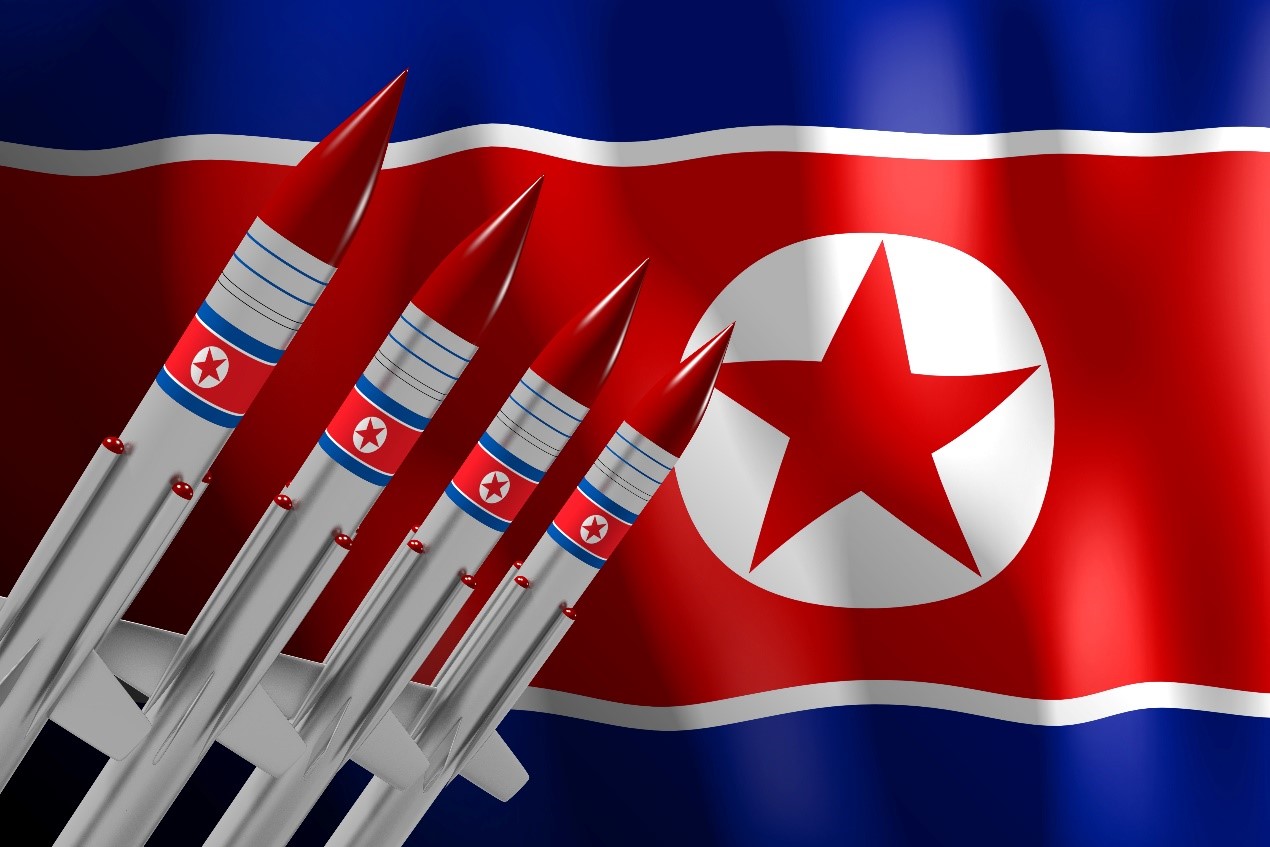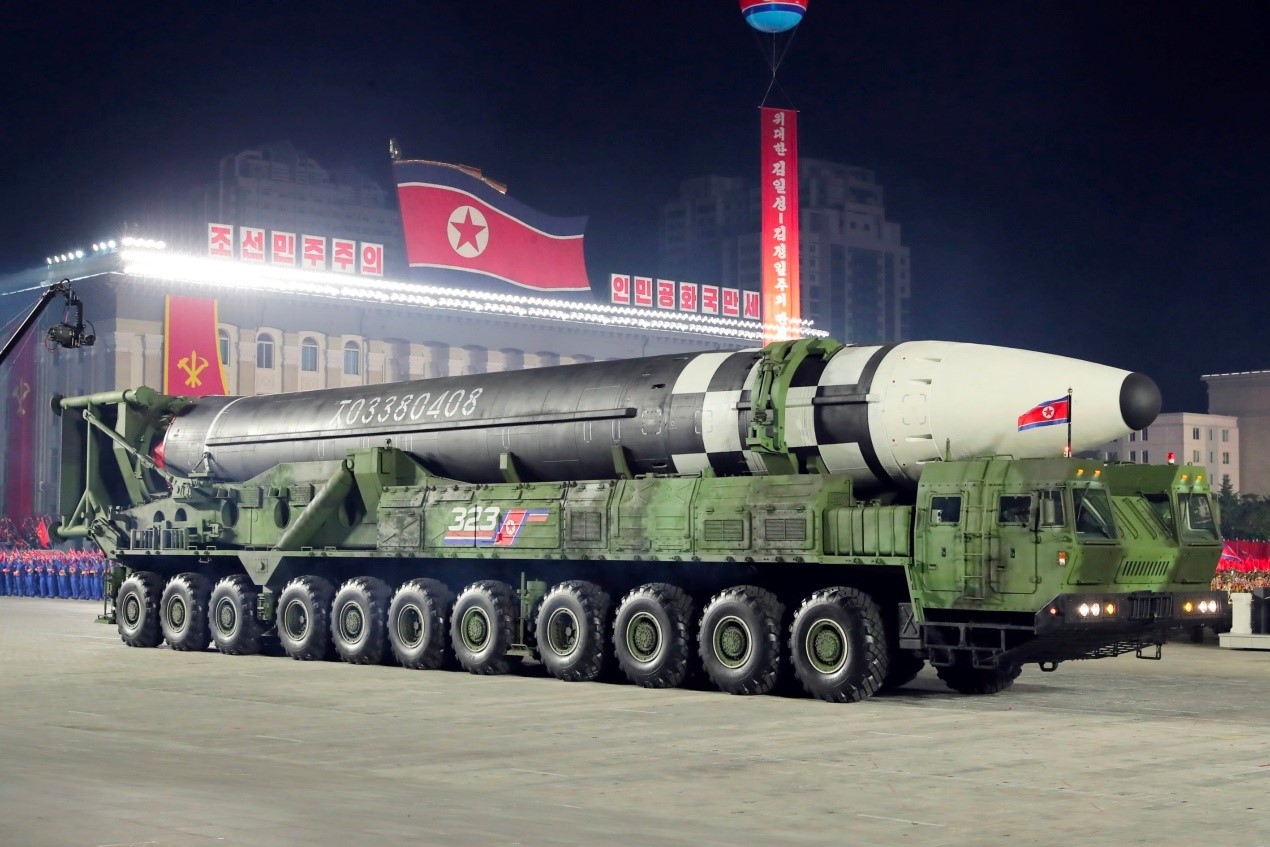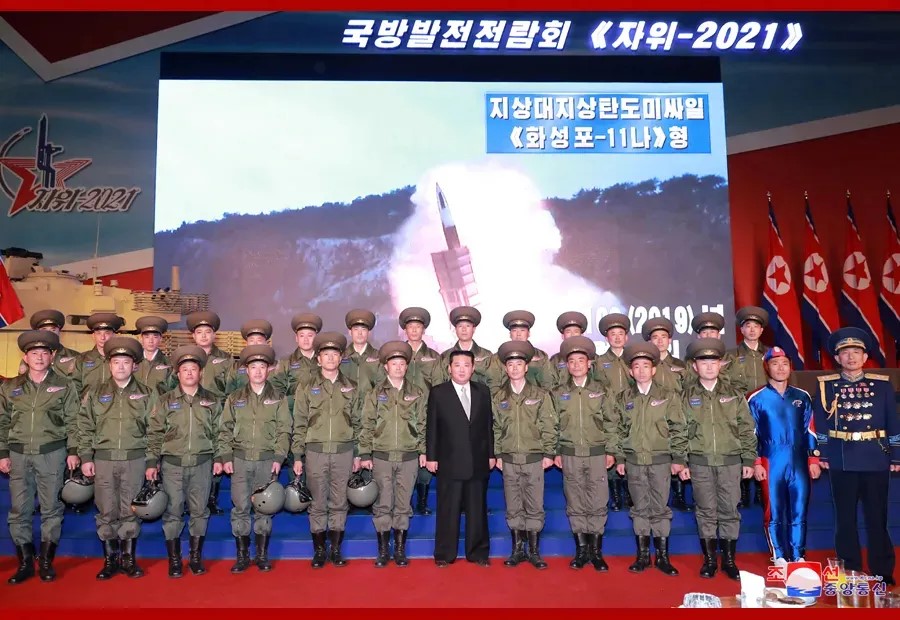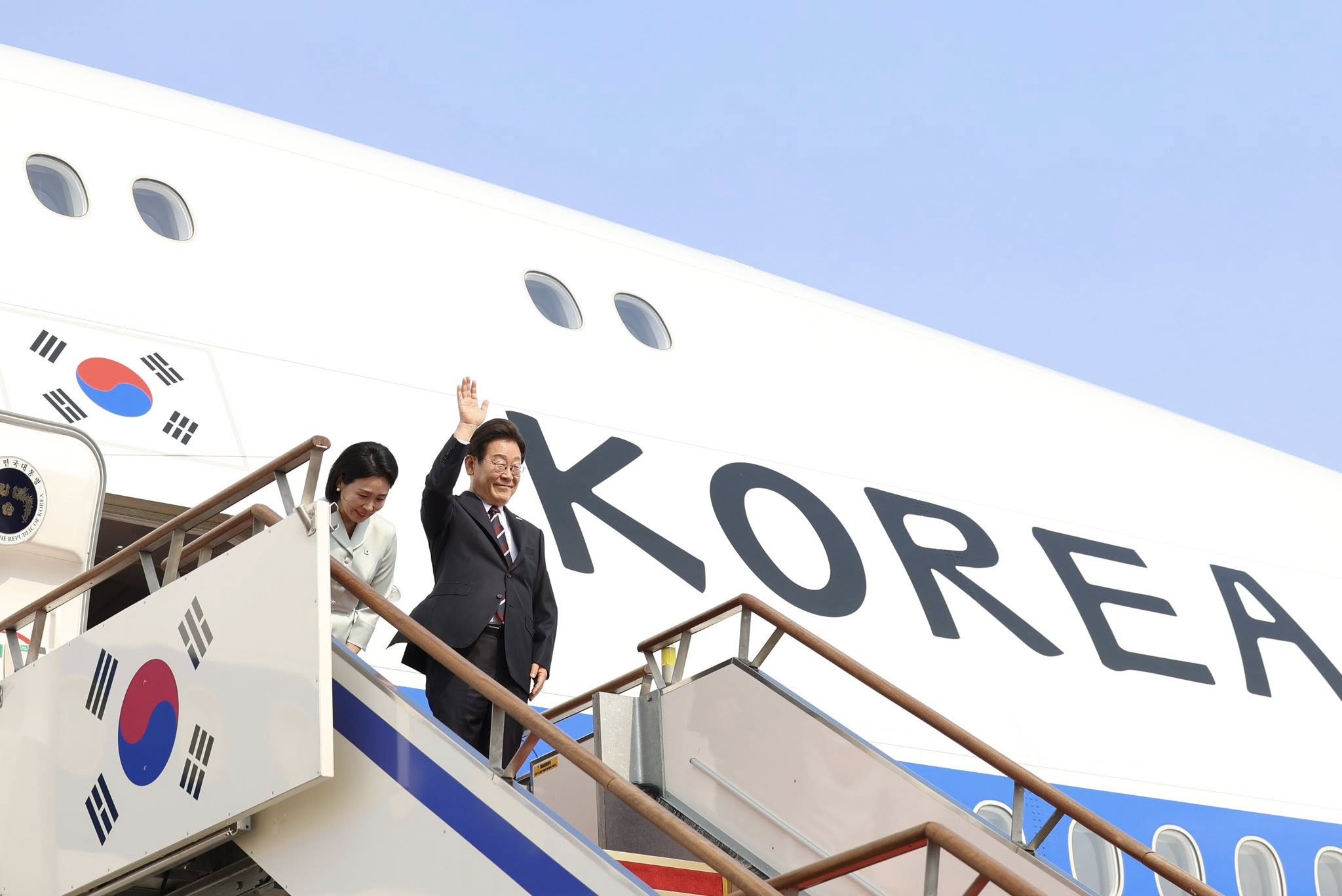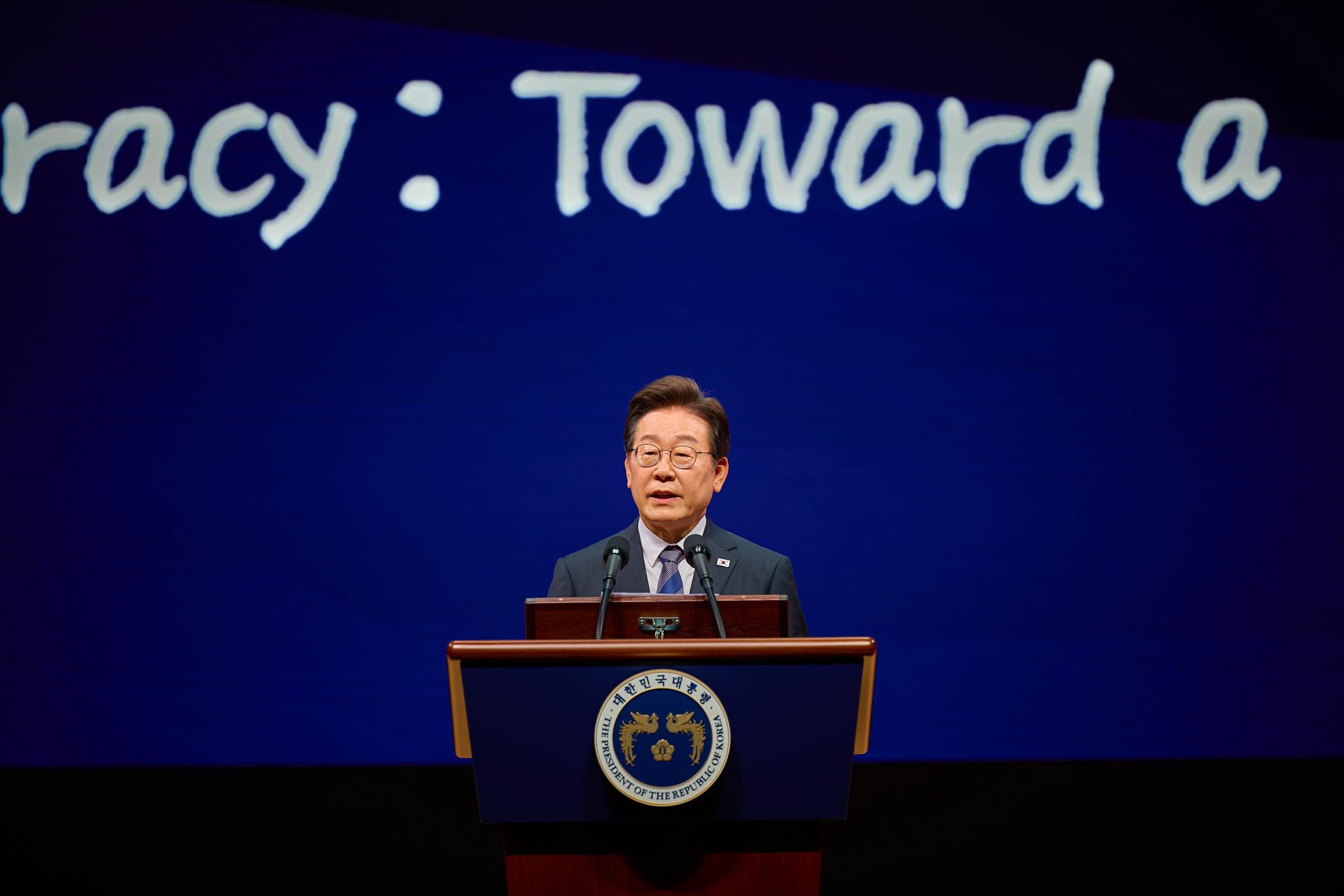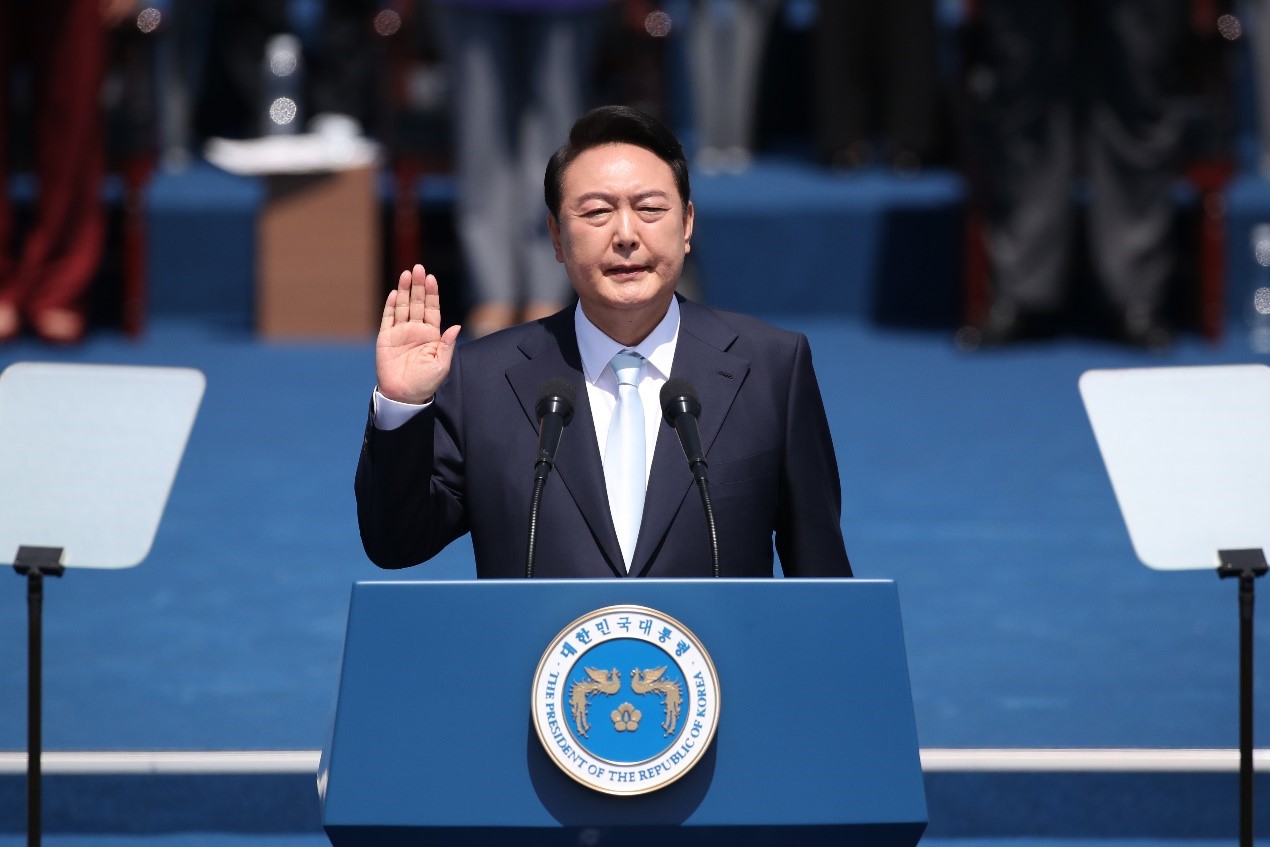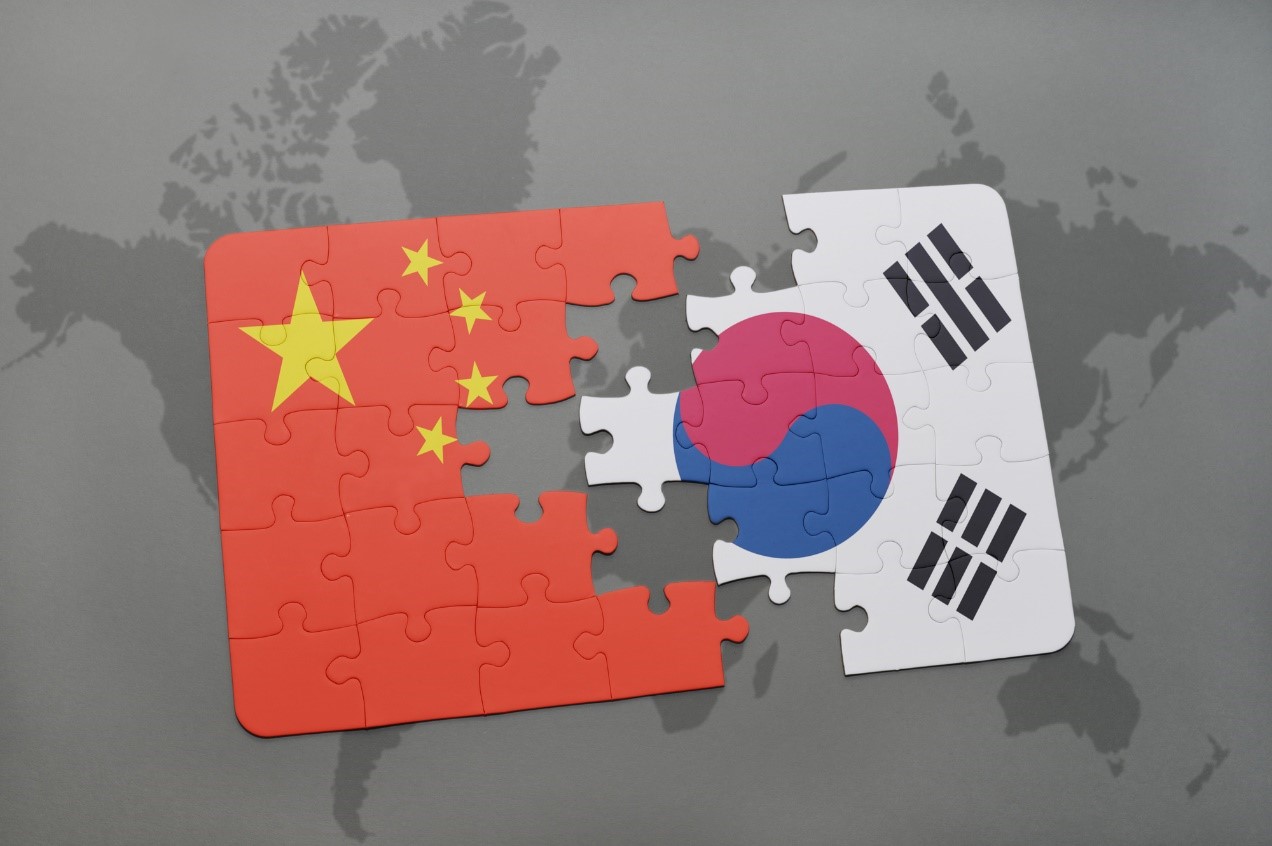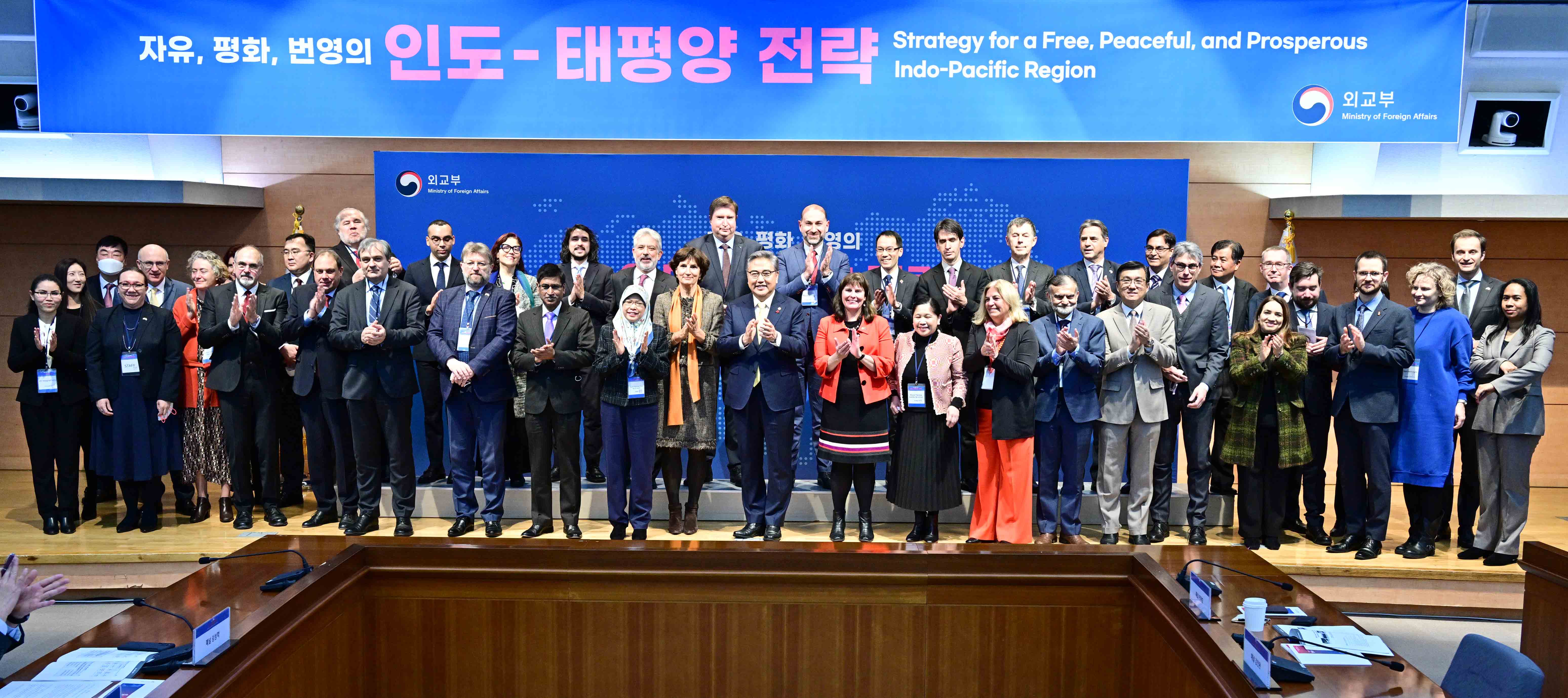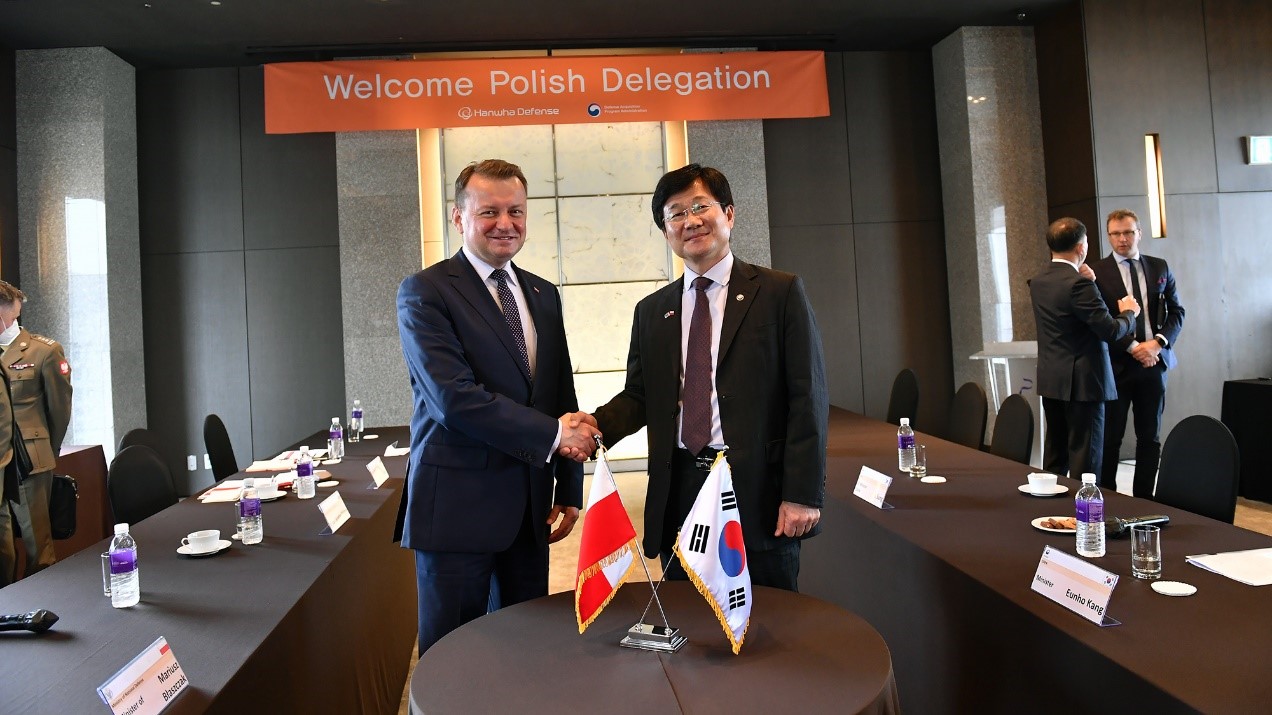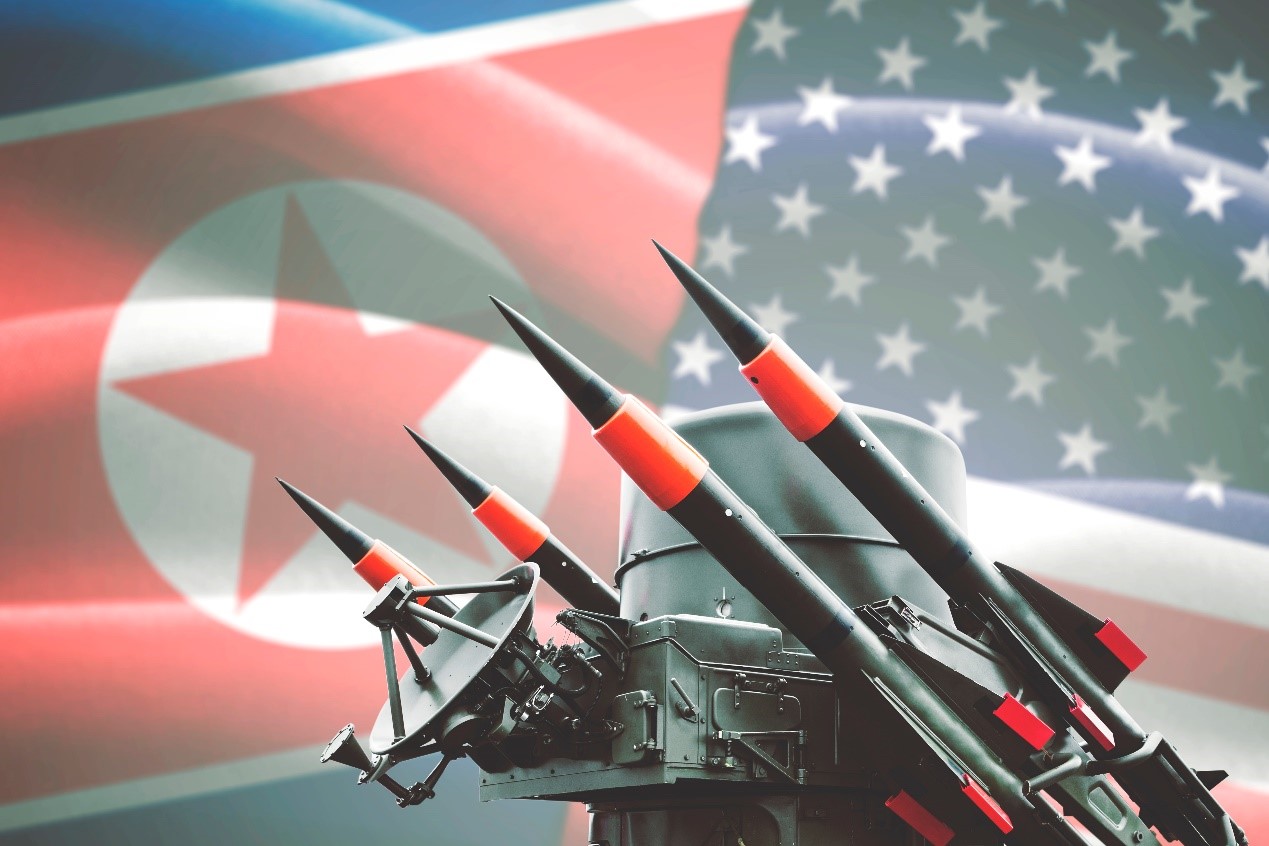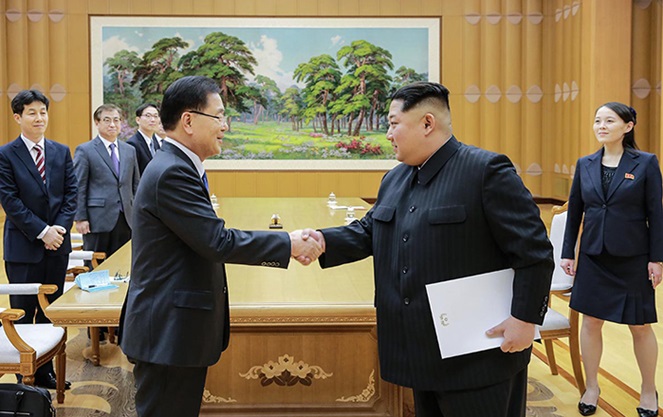Taiwan and South Korea are akin to “siblings”—both “dynamic economies and cultural beacons that fought successfully to achieve democracy in the late 20th Century.” While both have long been considered potential “flashpoints,” war is now being talked about again in earnest. Picture source: Depositphotos.
Prospects & Perspectives No. 15
Taiwan’s Korea Problem
By Joel Atkinson
As former deputy national security advisor Matt Pottinger recently told a forum in Seoul, Taiwan and South Korea are akin to “siblings”—both “dynamic economies and cultural beacons that fought successfully to achieve democracy in the late 20th Century.” Like many siblings, Taiwan and Korea have not always gotten along well, but they have been through a lot together. The Manchu Qing-Japan war, the Pacific War, the Korean War, and the Cold War have all profoundly shaped their intertwined destinies.
While both have long been considered potential “flashpoints,” war is now being talked about again in earnest. China watchers comb through China’s new government work report to see if the phrase “peaceful unification” has been dropped (it has), and assess the implications of China’s rapidly expanding nuclear arsenal on deterrence strategies. Meanwhile, prominent North Korea observers Robert Carlin and Siegfried Hecker assert that “like his grandfather in 1950, Kim Jong Un has made a strategic decision to go to war.” Their concerns center on shifts in Pyongyang’s war rhetoric, which seems to have abandoned the possibility of peaceful national unification.
Tag-teaming?
Many assume that a North Korean attack on the South would likely see China seize the opportunity to attack Taiwan, and vice versa. Such a scenario could prove disastrous for both South Korea and Taiwan, with the U.S. struggling to find the industrial capacity and weaponry to aid Ukraine and Israel, let alone fight two full-blown, high-intensity wars of its own.
However, if North Korea and China will only embark on war when the other is also ready (a big if), then perhaps we shouldn’t expect a Greater East Asia War 2.0 soon. North Korea has likely supplied Russia with millions of artillery shells, rockets, and other munitions for use against Ukraine. That is not something you do before launching an invasion against a formidable opponent, especially one backed by a superpower. But it does not need to reach the point of war for the Korean peninsula to have a profound impact on Taiwan.
Regime preservation
Observers have long highlighted North Korea’s dire economic situation and precarious regime structure. However, despite these challenges, its coercive capabilities relative to South Korea and the United States have grown substantially and continue to strengthen.
The Kim regime now possesses, or is nearing the capability to reliably deliver, a nuclear strike against the continental United States. Its tactical nuclear weapons can be used to overcome the massive mismatch in terms of battlefield technology. It has manpower and industrial capacity when South Korea is increasingly short of the former and the U.S. the latter. Additionally, North Korea’s artillery, capable of devastating Seoul, has effectively deterred the U.S. from using force for decades.
Similar to China’s approach to Taiwan, North Korea seeks to leverage its coercive power to compel the United States (and Japan) to withdraw from Korean peninsula affairs, while simultaneously coercing and co-opting South Korea towards a “one country, two systems” subjugation. Such an outcome is the only way to preserve the regime. Although not widely embraced in South Korea, there exists a segment willing to work toward a compromise with the Kim family in the interests of Korean nationalism, peace, increased autonomy from the United States, and economic benefits.
Front and center of these potential compromises is the idea of American recognition of North Korea’s nuclear status, accompanied by the removal of sanctions and an influx of aid and resources. Like both sides of the Taiwan Strait, both sides of the DMZ now have their eyes on the upcoming November presidential elections in the United States to gauge the possibilities.
The U.S. angle
While not yet mainstream, there is a growing appetite in the United States for some level of acceptance of North Korea’s nuclear arsenal. Pyongyang likely hopes that a return of Trump to the White House would further shift the Overton window towards acceptance. Moreover, Kim Jong Un would not be crazy to think that Trump might withdraw U.S. forces from Korea, given previous statements to that effect, or renegotiate the cost-sharing agreement in a manner that sours South Korean sentiment towards the alliance.
Should Biden remain in office, he is expected to maintain pressure on Pyongyang to commence the denuclearization process in exchange for sanctions relief. This stance would likely lead to an escalation in tensions before preconditions are softened to enable yet another round of talks.
Regardless of the electoral outcome in the United States, what unfolds regarding Korea will have significant implications for Taiwan. In the event of a Biden victory, a potential spiral of tensions with North Korea could divert Washington’s attention away from Taiwan. Obama reportedly told Trump that North Korea was the country’s most urgent security challenge as he handed over the presidency. While it seems unlikely that North Korea, with a population roughly equivalent to Taiwan’s, could reclaim that position from China, a second Biden administration might be inclined to make concessions over Taiwan in the hope that Beijing will “manage” Pyongyang.
A more optimistic scenario is that increased belligerence from North Korea could prompt Washington to further strengthen its commitment to the region, pushing it toward bolstering alliance cohesion, enhancing industrial capacity, and improving military readiness.
The impact of a potential Trump victory is obviously less predictable. It could lead to another round of heightened tensions and fiery rhetoric, reminiscent of the early days of the first Trump administration. Alternatively, a deal accepting North Korea’s nuclear status in some capacity would reshape regional dynamics in unpredictable ways. Pulling U.S. troops out of the Korean peninsula would likely prove even more disruptive.
In the best-case scenario from Taiwan's perspective, either of these radical Trump-led shifts would free up U.S. resources to focus on deterring China. However, it is more likely that such developments would fuel doubts about U.S. security commitments to Taiwan and other allies, and further solidify the U.S.’ growing isolationist tendencies. The future of the region would be thrown into even greater uncertainty, increasing the risk of Beijing making a perilous miscalculation.
As Xi Jinping told Vladimir Putin in Moscow a year ago, the world is witnessing changes not seen in a hundred years, with China and Russia aiming to build that new world together. To that we can add North Korea, which has declared itself in the “same trench” as Russia against US imperialism. Pyongyang aggressive pursuit of change—and the US’ response—will have significant implications for Taiwan as well as South Korea.
(Dr. Atkinson is a professor in the Graduate School of International and Area Studies, Hankuk University of Foreign Studies, Seoul.)


